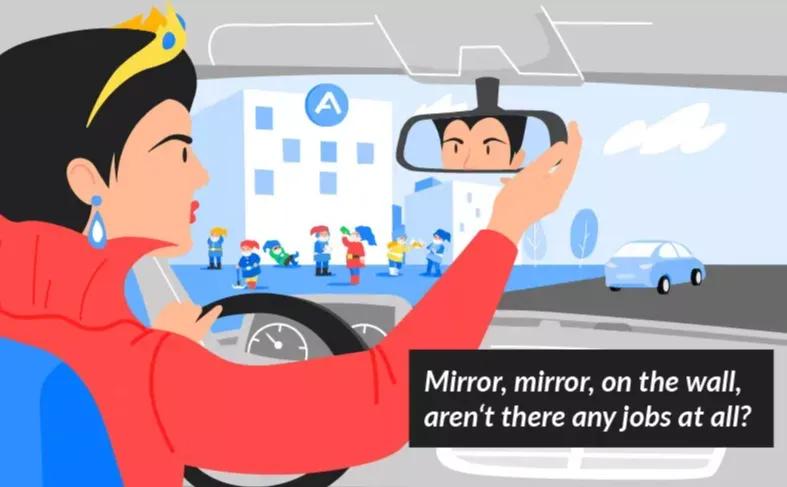Once upon a time…electromobility was a job killer!
The production of an electric car is less complex and less labor-intensive than that of a conventional car due to the smaller number of components. Some studies also predict this and expect a significant decline in jobs in the automotive and supplier industry. According to calculations by the Center Automotive Research (CAR) at the University of Duisburg-Essen, car manufacturers and suppliers are expected to eliminate a total of almost 234,000 jobs in the production and development of technology for internal combustion engines. In return, however, only around 109,000 new jobs would be created in the development and production of parts for electric drives. That leaves a minus of 125,000 jobs. The Institute for Employment Research (IAB) has come to a similar conclusion, according to which electric cars could lead to the loss of up to 114,000 jobs in Germany, 83,000 of them in vehicle construction.
Fewer components, fewer jobs
The production of an electric car is less complex and less labor-intensive than that of a conventional car due to the smaller number of components. Some studies also predict this and expect a significant decline in jobs in the automotive and supplier industry. According to calculations by the Center Automotive Research (CAR) at the University of Duisburg-Essen, car manufacturers and suppliers are expected to eliminate a total of almost 234,000 jobs in the production and development of technology for internal combustion engines. In return, however, only around 109,000 new jobs would be created in the development and production of parts for electric drives. That leaves a minus of 125,000 jobs. The Institute for Employment Research (IAB) has come to a similar conclusion, according to which electric cars could lead to the loss of up to 114,000 jobs in Germany, 83,000 of them in vehicle construction.
Electric mobility creates new jobs
However, the impact on the job market from electric mobility goes far beyond pure vehicle production, with positive effects: Driven by the expansion of renewable energies, new jobs are being created in several other areas that could have a significant impact - for example in the energy industry, charging infrastructure or digitization. The German eMobility Association (BEM) estimates that the establishment of a nationwide charging infrastructure in both the public and private sectors will require a workforce of 255,000 skilled workers over the next ten years. In order to avoid the power generation gap resulting from the nuclear and coal phase-out, photovoltaic and storage capacities must also be expanded much more strongly, which, according to a study by EuPD Research, could create more than 50,000 new jobs in Germany by 2030.
Transformation of the job market
Due to their design, electric cars also have the advantage that they have fewer parts that could break down or must be replaced at certain intervals. Time-consuming oil changes, the replacement of wear parts such as the exhaust, glow plugs and clutch as well as air and fuel filters are no longer necessary in electric cars. The brakes are also less strained and need to be replaced less frequently, since electric cars decelerate considerably when recuperating via their engine in order to recover energy for the battery. This also saves money for rim cleaning supplies.
All in all, the maintenance and repair costs for electric cars are a good third less than those of a comparable vehicle with a combustion engine, as the Institute for Automotive Economics (IFA) calculated several years ago. According to the experts, after eight years there is a cost advantage for electric cars of around 1300 euros even for a small vehicle. Other advantages such as free parking, loading and parking spaces in the first row, the use of bus lanes or a higher speed limit, as is permitted on some Austrian motorways, are also an added bonus.
